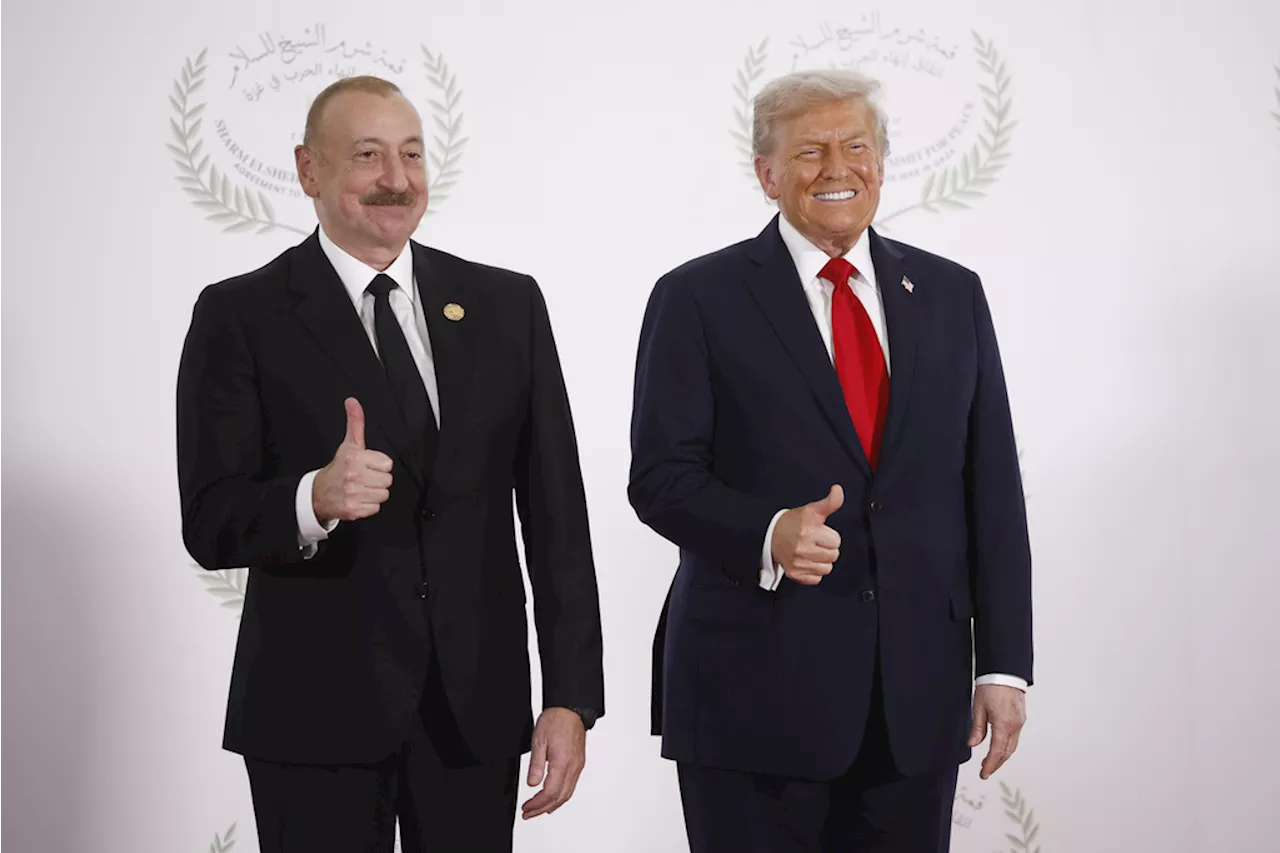Politics
Azerbaijan Faces Increased Scrutiny Over Sanctions Compliance

The Trump administration is intensifying pressure on Azerbaijan due to its non-compliance with sanctions against Russia. Despite presenting itself as a pro-Western nation, Azerbaijan’s leadership under Ilham Aliyev has raised concerns regarding its genuine commitment to countering terrorism and upholding international norms.
Historically, Azerbaijan has portrayed itself as a model of religious tolerance and a stronghold against extremist ideologies. However, critics argue that this image is misleading. The regime is known to finance extravagant trips to Jewish and Christian sites, where local leaders often express gratitude for the government’s generosity. Yet, many of these communities exist primarily as tourist attractions, undermining their authenticity.
Recent events in the region have further complicated Azerbaijan’s international standing. Following the ethnic cleansing of Nagorno-Karabakh in 2023, the Aliyev government detained ethnic Armenian leaders on dubious terrorism charges. Among those arrested are Ruben Vardanyan, a well-known philanthropist, and David Babayan, a former foreign minister. Their detention has drawn heavy criticism and echoes tactics reminiscent of the Soviet era, as the government tries to equate these intellectuals with actual terrorists.
Azerbaijan’s use of mercenaries has also raised alarms. Reports indicate that Azerbaijani forces have recruited impoverished Syrians, some of whom have openly stated their brutal intentions. One mercenary captured by Armenian forces claimed, “We came here to cut off heads.” This alarming statement highlights Azerbaijan’s troubling alliances and challenges its portrayal as a stabilizing force in the region.
In addition to these human rights concerns, Azerbaijan’s economic ties to Russia complicate its role in the global energy market. On May 9, 2025, Russian oil giant Lukoil acquired nearly 10% of the Shah Deniz natural gas project from Malaysia’s Petronas, becoming a partner of Azerbaijan’s state-owned oil company, SOCAR. While Azerbaijan positions itself as a viable alternative to Russian gas, its actual output does not measure up, leading analysts to suggest that it might serve as a conduit for Russian and Iranian energy resources instead.
The ongoing dynamics pose a challenge for Western nations, particularly the United States and the United Kingdom. The British government has expressed skepticism toward Azerbaijan’s ability to act as a reliable partner in regional security. Despite Azerbaijan’s attempts to project a favorable image, actions such as the support for armed factions and the failure to uphold sanctions against Russia reveal a stark contrast to its stated commitments.
As the situation evolves, analysts urge the West to recalibrate its approach to Azerbaijan. Forcing Baku to cease its support for religious repression, terrorist activities, and sanctions violations could be a crucial first step in promoting stability in the region. The international community must remain vigilant in its dealings with Azerbaijan, ensuring that rhetoric aligns with actions to uphold security and human rights in the Caucasus.
-

 Science3 weeks ago
Science3 weeks agoResearchers Challenge 200-Year-Old Physics Principle with Atomic Engines
-

 Politics1 week ago
Politics1 week agoHamas Chief Stresses Disarmament Tied to Occupation’s End
-

 Science1 week ago
Science1 week agoOhio State Study Uncovers Brain Connectivity and Function Links
-

 Entertainment1 week ago
Entertainment1 week agoSyracuse Stage Delivers Lively Adaptation of ‘The 39 Steps’
-

 Top Stories1 week ago
Top Stories1 week agoFederal Agents Detain Driver in Addison; Protests Erupt Immediately
-

 World3 weeks ago
World3 weeks agoGlobal Military Spending: Air Forces Ranked by Budget and Capability
-

 Politics2 weeks ago
Politics2 weeks agoNHP Foundation Secures Land for 158 Affordable Apartments in Denver
-

 Politics1 week ago
Politics1 week agoNFL Confirms Star-Studded Halftime Show for Super Bowl LVIII
-

 World1 week ago
World1 week agoBoeing’s Aircraft Production: Assessing Numbers and Challenges
-

 Lifestyle1 week ago
Lifestyle1 week agoTrump’s Push to Censor National Parks Faces Growing Backlash
-

 Top Stories1 week ago
Top Stories1 week agoWill Smith Powers Dodgers to World Series Tie with Key Homer
-

 Lifestyle1 week ago
Lifestyle1 week agoRed Bluff High School’s Elli Nolan Named Rotary Student of the Month









